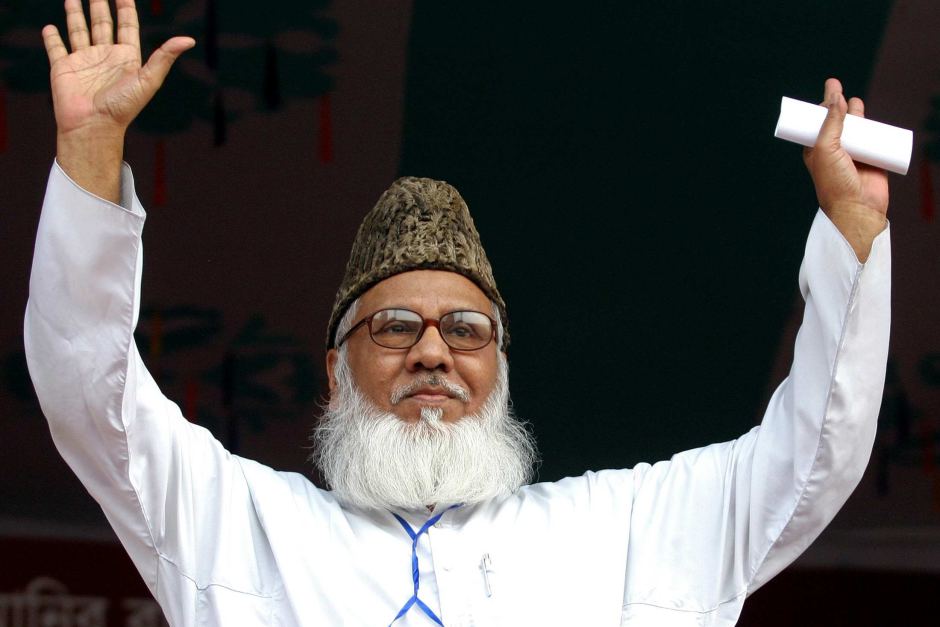The head of Bangladesh’s largest jihadist party, Motiur Rahman Nizami, was hanged on Wednesday for his role in genocide and other crimes committed during the 1971 war of independence from Pakistan, the law minister said, risking an angry reaction from his supporters.
Nizami, the 73-year-old head of the Jamaat-e-Islami party, was hanged at Dhaka Central jail just after midnight amid tight security, after the Supreme Court rejected his final plea against a death sentence imposed by a special tribunal for genocide, rape and orchestrating the massacre of top intellectuals during the war.
Hundreds of people flooded the streets of the capital, Dhaka, to celebrate the execution. “We have waited for this day for a long 45 years,” said war veteran Akram Hossain. “Justice has finally been served.”
Nizami, a former legislator and minister during opposition leader Khaleda Zia’s last term as prime minister, was convicted of three major charges stemming from the 1971 war, including the killings of 480 people. He was also held responsible for the killings of dozens of intellectuals, including teachers, journalists and doctors, just two days before Bangladesh gained its independence in 1971. He was sentenced to death in 2014.
The party denies that its leaders committed any atrocities.
But the war crimes tribunal set up by Prime Minister Sheikh Hasina in 2010 has sparked violence and drawn criticism from opposition politicians, including leaders of Jamaat-e-Islami, that it is victimizing Hasina’s political opponents.
Thousands of extra police and border guards were deployed in Dhaka and other major cities. Previous similar judgments and executions have triggered violence that killed around 200 people, mainly Jamaat activists and police.
Five opposition politicians, including four Jamaat-e-Islami leaders, have been executed since late 2013 after being convicted by the tribunal.
STRIKE CALL
Jamaat-e-Islami, which has said the charges against Nizami were baseless, called for a nationwide strike on Wednesday in protest. Calling Nizami a ‘martyr’, it said he was deprived of justice and made a victim of a political vendetta.
The U.S. State Department said that while it supported justice being carried out for the 1971 atrocities, it was vital that the trials of those accused are free, fair and transparent and conducted in accordance with international agreements.
“While we have seen limited progress in some cases, we still believe that further improvements to the … process could ensure these proceedings meet domestic and international obligations,” State Department spokeswoman Elizabeth Trudeau said in a statement. “Until these obligations can be consistently met, we have concerns about proceeding with executions.”
International human rights groups had protested the death sentence for Nizami saying the tribunal’s procedures fall short of international standards.
Authorities also rejected opposition claims that Nizami’s trial was politically motivated and designed to weaken the opposition, saying the families of the 1971 victims have the right to receive justice for their suffering.
